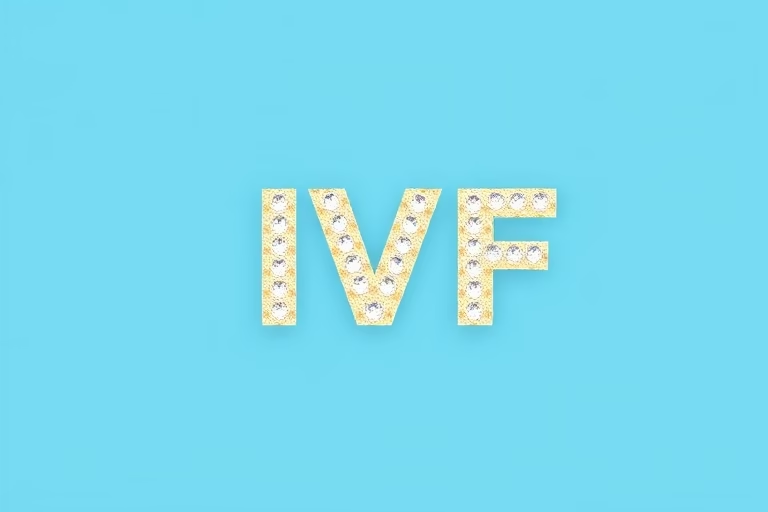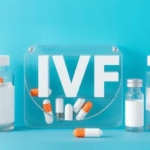In this article, we will be discussing the topic of IVF vs IUI success rates. Both In Vitro Fertilization (IVF) and Intrauterine Insemination (IUI) are popular treatments for couples struggling with infertility. Understanding the success rates of these procedures is essential for individuals or couples when choosing the right path for their fertility journey. Each method has its own benefits and limitations, and this comparison will shed light on their effectiveness in helping couples achieve pregnancy.
IVF involves the fertilization of an egg outside the body, whereas IUI places sperm directly into the uterus during the woman’s ovulation cycle. Patients often ponder which option may be more suitable for them based on various factors, including age, health status, cause of infertility, and personal preferences. In this discussion, we will evaluate the various factors that influence the success rates of both methods, helping couples make informed decisions.
Understanding IVF and IUI
In the realm of assisted reproductive technologies, IVF and IUI play significant roles. IVF, which stands for In Vitro Fertilization, is a complex medical procedure that involves retrieving eggs from a woman’s ovaries and fertilizing them with sperm in a laboratory. The resulting embryos are then implanted into the woman’s uterus. This method is usually recommended for women with blocked fallopian tubes, advanced age, endometriosis, or male factor infertility.
IUI, or Intrauterine Insemination, is a less invasive procedure where sperm is placed directly into a woman’s uterus around the time of ovulation, enhancing the chances of sperm reaching the egg. This method is generally suggested for couples with mild male infertility, unexplained infertility, or those trying to conceive after fertility treatments.
With an understanding of these two methods, it is crucial to assess their success rates under various conditions. Factors including patient age, the fertility issue at hand, and prior treatment history can significantly affect the outcomes of both IVF and IUI.
Success Rates Based on Age
Age is one of the most critical factors influencing the success rates of both IVF and IUI. Generally, women under 35 have higher success rates with both methods. For IVF, women under 35 may see success rates upwards of 40% per cycle, whereas women in their late 30s and early 40s will notice a decline in these rates. In contrast, IUI tends to have lower success rates, often between 10-20% for women under 35. As women age, the quality and quantity of their eggs decrease, which directly impacts the chances of conception.
In women over 40, the success rates for IVF drop significantly, often falling to below 10%. In IUI, success rates are typically even lower due to diminished egg quality and other factors. Thus, age plays a crucial role in determining which treatment option might yield higher chances for successful conception.
Health Factors Impacting Success Rates
Certain health factors can impact the success rates of IVF and IUI. For instance, conditions like polycystic ovary syndrome (PCOS) can affect ovarian function and hormonal balance, leading to varied success rates. Women with balanced hormonal levels are more likely to respond positively to fertility treatments. Additionally, weight plays a significant role; women with a Body Mass Index (BMI) within a normal range often experience better outcomes than those who are overweight or underweight.
Another vital health consideration is the male partner’s sperm quality. Sperm health directly influences the success rates of IUI, especially since the procedure relies on healthy, motile sperm to achieve conception. Meanwhile, IVF allows for the direct selection of sperm, which can mitigate some issues regarding male infertility. Therefore, couples should consider addressing any underlying health issues before proceeding with treatment.
Previous Fertility Treatments and Outcomes
The past fertility treatments a couple has undergone can significantly affect their chances of success with either IVF or IUI. Previous unsuccessful IUI cycles may indicate a need to explore IVF due to potential underlying complications that IUI cannot address. On the contrary, if a couple has experienced successful IUI cycles but has not achieved pregnancy, continuing the same method could still yield results.
It is essential for couples to discuss their treatment history in detail with their medical practitioners. Physicians can provide valuable insights and recommendations based on prior outcomes, ensuring that couples are well-informed when choosing between IVF and IUI.
The Role of Fertility Clinics
The clinic’s expertise and technology can either bolster or diminish the chances of successful treatment. Factors such as laboratory success rates, the experience of specialists, and available cutting-edge technologies play a crucial role in the success of IVF and IUI.
Clinics that specialize in reproductive endocrinology tend to have greater success rates due to their advanced knowledge and resources in treating infertility. Patients should research and inquire about clinic data, success rates, and reviews from other clients before choosing their provider.
Cost Considerations for IVF and IUI
The costs associated with both IVF and IUI can significantly influence a couple’s decision. IVF is typically more expensive, often requiring multiple cycles to achieve pregnancy. This cost factor can weigh heavily on a couple’s ability to pursue treatment. IUI, on the other hand, is usually less expensive and may be an appealing option for those on tighter budgets.
Additionally, patients need to consider their insurance coverage for infertility treatments, as this can vary widely by provider and region. Understanding the financial implications of each treatment option is essential for making an informed choice.
Emotional and Psychological Factors
Undergoing fertility treatments can be emotionally taxing for couples. Understanding the emotional implications and support available for each treatment type is vital. IVF is often accompanied by a greater emotional burden due to its invasive nature and the uncertainty surrounding multiple cycles and outcomes. IUI may have a lighter emotional toll, given its less invasive nature and shorter treatment timeframe.
Couples should consider seeking counseling or support groups during this journey. Having an emotional support system can help in coping with the pressures of fertility treatments, regardless of which option they choose.
Long-Term Learning and Adaptive Strategies
Understanding the successes and challenges of both IVF and IUI enables couples to adapt their strategies over time. Learning from each cycle, assessing what worked and what didn’t, empowers couples in their reproductive journey. This iterative approach may involve transitioning from IUI to IVF based on previous experiences or revisiting options after a period of time.
Couples may also consider lifestyle changes during their journey to improve their overall health and enhance their chances, as these adaptations may influence the outcomes of fertility treatments.
Final Thoughts
In conclusion, the success rates of IVF and IUI vary across individuals and depend on numerous factors, including age, health, prior experiences, the chosen clinic, emotional well-being, and financial considerations. Couples must evaluate their unique circumstances and work closely with their medical providers to determine the optimal path forward. Both IVF and IUI offer hopeful avenues toward parenthood, but understanding their success rates can aid in making a more informed choice. Ultimately, whatever path a couple takes, the journey toward parenthood can be filled with uncertainty, and it’s paramount to have a supportive network and strong communication with healthcare professionals.
Frequently Asked Questions
IVF success rates typically range from 40% for women under 35 to about 10% for those over 40. IUI success rates generally range from 10% to 20% for women under 35.
If multiple IUI cycles have not resulted in pregnancy, or if a couple has certain medical conditions, transitioning to IVF may be recommended.
A woman’s age is pivotal, as younger women typically experience higher success rates. Health issues such as hormonal imbalances and male factor infertility also play crucial roles.
IVF is generally more expensive, often costing between $10,000 to $15,000 per cycle, while IUI typically ranges from $300 to $1,000 per cycle, depending on various factors.
Yes, adopting a healthy lifestyle, maintaining a balanced weight, and reducing stress can positively impact the success rates of both IVF and IUI.
Further Reading
What Type of Psychotherapy Is Best for Anxiety?







